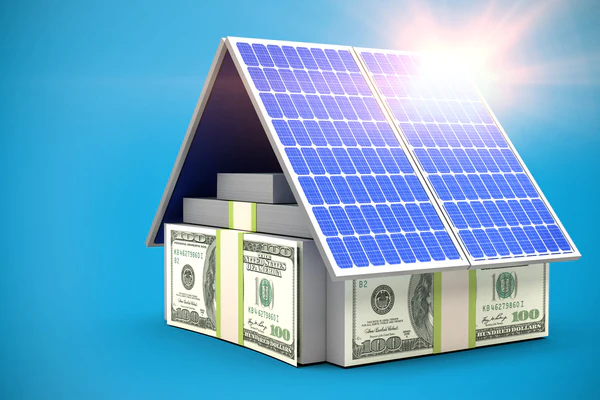
Introduction
The renewable energy sector has witnessed a remarkable increase in the installation of residential solar panels. Homeowners are now more aware of the economic advantages of utilizing solar energy to generate electricity. This article delves into the importance of residential solar panels and explores the various economic benefits they offer.
Historical Background
Solar panels have come a long way since their inception. The history of solar panels dates back to the mid-19th century when scientists first discovered the photovoltaic effect. However, practical solar cell development only began in the 1950s. Technological advancements and manufacturing processes have made solar panels more affordable and efficient over the years, leading to their widespread adoption.
Key Concepts and Definitions
To fully comprehend the economic benefits of residential solar panels, it is essential to familiarize ourselves with key terms and concepts. Net metering allows homeowners to receive credits for excess electricity generation that is fed back into the grid. Feed-in tariffs provide financial incentives to homeowners for the electricity they produce. Return on investment (ROI) measures the profitability of solar panel installations by calculating the time it takes to recoup the initial investment through energy savings.
Main Discussion Points
Cost Savings
One of the primary benefits of residential solar panels is the significant cost savings they offer. By generating their own electricity, homeowners can substantially reduce their monthly bills and decrease their reliance on the traditional power grid. Solar panels also provide long-term savings as homeowners continue to generate their own electricity, even when grid electricity prices increase. Furthermore, various financial incentives and tax credits exist to further offset the upfront costs of installing residential solar panels.
Increase in Property Value
Studies consistently show that residential solar panels can increase the value of homes. Homebuyers are willing to pay a premium for properties equipped with solar panels due to their energy efficiency and reduced utility costs. This increased property value can result in substantial returns on investment for homeowners who choose to install solar panels.
Job Creation and Economic Growth
The adoption of residential solar panels contributes to job creation and economic growth. The growing solar industry offers employment opportunities in both the installation and manufacturing sectors. As more homeowners embrace solar energy, local economies experience a boost from the increased demand for solar panel installations. Numerous statistics and case studies highlight the positive correlation between the adoption of residential solar panels and resulting economic growth.
Case Studies or Examples
Real-world examples of residential solar panel installations showcase the tangible economic benefits they provide. Homeowners and communities have experienced significant cost savings and increased property values as a result of solar panel installations. These case studies serve as compelling evidence of the positive impact that residential solar panels can have on individuals and communities.
Current Trends or Developments
The residential solar industry is continually evolving, and recent trends indicate increasing affordability and efficiency of solar panels. Declining costs of solar panel installations make them more accessible to homeowners. Advances in technology have also resulted in higher energy conversion rates, further enhancing the economic benefits of residential solar panels. Ongoing research continues to uncover new findings related to the economic advantages of solar panel installations.
Challenges or Controversies
While the economic benefits of residential solar panels are undeniable, homeowners may face challenges when considering installation. High upfront costs and limited access to financing options can act as barriers for some individuals. Additionally, controversies and differing viewpoints exist regarding the impact of solar panels on non-solar consumers and grid stability. It is important to address these challenges and controversies to ensure a balanced understanding of the topic.
Future Outlook
The future of residential solar panels looks promising, with potential for widespread adoption and significant economic growth. As technology continues to advance, solar panels are expected to become even more efficient and affordable. Policy changes and emerging technologies may further enhance the economic benefits, making solar energy an integral part of transitioning to a clean energy future.
Conclusion
Residential solar panels offer substantial economic benefits, including cost savings, increased property value, and job creation. Homeowners who harness the power of the sun can lower their electricity bills, increase the value of their homes, and contribute to local economic growth. The significance of these benefits cannot be overstated, and further exploration and research in this field are encouraged.
References:
Solar Energy Industries Association (SEIA)
National Renewable Energy Laboratory (NREL)
Clean Energy States Alliance (CESA)